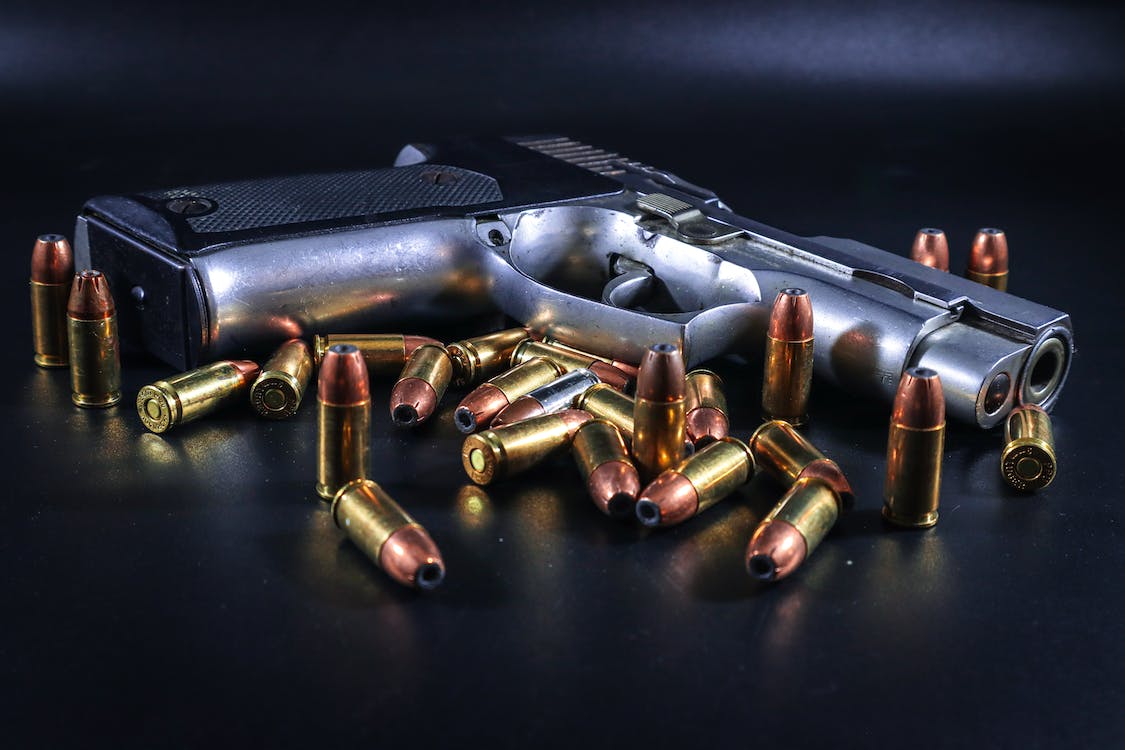Self defense is a crucial skill that empowers individuals to protect themselves in dangerous situations. With an alarming increase in crime rates, it has become more important than ever before to navigate the various options available and choose the right self defense weapon. From pepper sprays and stun guns to personal alarms and tasers, the market offers a wide array of choices to suit different preferences and needs.
In recent years, self defense products have seen a sharp rise in popularity due to the growing awareness of personal safety. According to a survey conducted by the International Association of Chiefs of Police, 58% of self defense weapon users reported feeling safer when carrying a weapon. This statistic underscores the significance of exploring and selecting the right self defense option.
Historically, self defense weapons have evolved over time in response to changing societal needs and advancements in technology. From the ancient Greeks using marbles in socks for self-protection to the introduction of personal alarms for the elderly in the 1980s, the selection of self defense weapons has expanded greatly. Today, advancements in technology have led to the development of innovative options like high-intensity flashlights with built-in stun guns.
With the multitude of options available, it is essential to consider personal circumstances, such as age, physical abilities, and comfort levels. Individuals with limited strength or mobility may find compact and easy-to-operate devices like personal alarms or compact stun guns more suitable. On the other hand, individuals with prior training and expertise may opt for more advanced options like expandable batons or firearms.
Choosing the right self defense weapon is a decision that should not be taken lightly or without proper research. A thorough understanding of the laws concerning self defense in one’s jurisdiction, coupled with an assessment of individual needs and capabilities, can aid in making an informed choice. By actively exploring the options and understanding their potential, individuals can empower themselves to effectively protect their own safety and well-being.
What are the key factors to consider when choosing a self defense weapon?
In this article, we will explore the important aspects you should keep in mind while selecting a self defense weapon that suits your needs and preferences. From considering the level of personal comfort to understanding the legality and effectiveness of different options, we will delve into each factor to ensure you make an informed decision. Read on to gain valuable insights into choosing the perfect self defense weapon for your protection.
Choosing the Right Self Defense Weapon for You
When it comes to personal safety, having a self defense weapon can provide you with peace of mind and a means to protect yourself in dangerous situations. However, with countless options available on the market, it can be challenging to determine which self defense weapon is right for you. To help you navigate through the options and make an informed decision, we’ve outlined some important factors to consider.
1. Assess Your Needs and Comfort Level
Before selecting a self defense weapon, it’s crucial to assess your specific needs and comfort level with different types of weapons. Consider factors such as your physical strength, the level of training you’re willing to undergo, and the legal restrictions in your area. Each self defense weapon has its own advantages and drawbacks, so understanding your personal preferences is essential in making the right choice.
2. Evaluate Different Types of Self Defense Weapons
There are various types of self defense weapons available, each designed for specific situations. Some common options include:
- Pepper spray: An easily accessible and non-lethal option that temporarily incapacitates the attacker.
- Personal alarms: Small and portable devices that emit loud noises to attract attention and deter attackers.
- Tactical flashlights: Powerful flashlights with blinding capabilities, providing both illumination and a means to disorient potential threats.
- Stun guns: Devices that deliver a high-voltage electric shock, temporarily disabling the attacker.
- Non-lethal firearms: Such as rubber bullets or bean bag guns, which can incapacitate an assailant without causing fatal injuries.
- Concealed carry firearms: For individuals trained in handling firearms, a concealed carry option may provide the highest level of protection.
3. Consider Legal Implications
It’s crucial to familiarize yourself with the legal implications and regulations surrounding self defense weapons in your locality. Different jurisdictions have varying laws regarding the possession and use of certain weapons, so ensure that you choose a self defense weapon that complies with your local regulations.
4. Obtain Proper Training
No matter which self defense weapon you decide on, obtaining proper training is essential. Training ensures that you understand the capabilities and limitations of your chosen weapon, as well as how to use it effectively and safely. Look for self defense classes or training programs that are tailored to your specific weapon of choice.
5. Stay Informed and Prepared
Self defense tactics and technologies are constantly evolving. It’s important to stay informed about new options and advancements in self defense weaponry. Regularly review safety guidelines, practice using your chosen weapon, and keep it easily accessible when needed.
Remember, the statistics show that being prepared and equipped with a self defense weapon can significantly increase your chances of fending off an attacker and escaping unharmed. Choose the right self defense weapon for specific situations and ensure that you are well-prepared to protect yourself.
Frequently Asked Questions
What are some key factors to consider when choosing a self defense weapon?
When choosing a self defense weapon, you should consider factors such as ease of use, legality, effectiveness, and your personal comfort level. Additionally, consider your physical capabilities, your environment, and whether you need a concealed or visible weapon.
What are some examples of non-lethal self defense weapons?
Non-lethal self defense weapons include Pepper spray, stun guns, tasers, personal alarms, and self defense keychains. These weapons are designed to incapacitate or deter an attacker without causing severe injury or death.
Are there any legal restrictions on self defense weapons?
Yes, there are legal restrictions on self defense weapons that vary by country and even by state or city. It is crucial to research and understand the laws in your specific location to ensure you are in compliance with all regulations.
How can I make the right choice when it comes to effectiveness?
Effectiveness of a self defense weapon depends on various factors, including your proficiency in using the weapon, the time available to use it, and the specific situation. It is advisable to choose a weapon that you can handle confidently and can quickly incapacitate an attacker.
What are the advantages of carrying a concealed self defense weapon?
Carrying a concealed self defense weapon provides the element of surprise and keeps the weapon hidden, reducing the likelihood of an attacker targeting you first. It also allows you to maintain a sense of normalcy in your daily life.
How important is it to receive proper training for using a self defense weapon?
It is crucial to receive proper training when using a self defense weapon to ensure you are proficient in handling it safely and effectively. Training can teach you various techniques, decision-making skills, and legal aspects associated with using the weapon.
What factors should I consider when deciding between a lethal or non-lethal self defense weapon?
When deciding between a lethal or non-lethal self defense weapon, consider the level of force needed to protect yourself. Non-lethal weapons are generally safer and intended to incapacitate temporarily, while lethal weapons are only suitable in extreme situations where your life is in imminent danger.
What self defense weapon is most suitable for individuals with limited physical strength?
For individuals with limited physical strength, non-lethal weapons like pepper spray or personal alarms can be highly effective. These weapons do not require significant physical force to use and can provide an advantage in defending oneself.
Are there any self defense weapons specifically designed for women?
Yes, there are self defense weapons specifically designed for women, such as self defense keychains, personal alarms, and small-sized pepper spray containers that can easily fit into a purse or pocket. These options focus on portability, ease of use, and quick accessibility.
Should I consider taking self defense classes in addition to carrying a self defense weapon?
Yes, it is highly recommended to consider taking self defense classes in addition to carrying a self defense weapon. Self defense classes can provide you with valuable skills, techniques, and strategies that can enhance your overall personal safety and confidence in handling potentially dangerous situations.
Conclusion
Choosing the right self defense weapon is crucial for ensuring personal safety in different situations. It is important to consider factors such as ease of use, legality, effectiveness, and personal preference when making this decision. For situations that involve close combat or close quarters, options like pepper spray or a stun gun can be effective due to their non-lethal nature and ease of use. On the other hand, for situations that require self defense from a distance, a firearm may be the best option, provided that the individual has the necessary training and meets all legal requirements. It is also important to consider personal comfort and confidence levels when choosing a self defense weapon. Ultimately, it is essential to remember that self defense should only be used as a last resort and in accordance with the law. Regular practice and training with the chosen weapon can also greatly enhance its effectiveness.
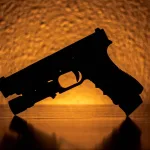

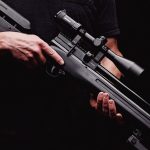
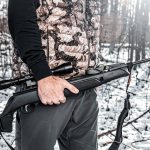
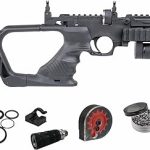


![Byrna SD [Self Defense] Kinetic Launcher Ultimate Bundle - Non Lethal Kinetic Projectile Launcher, Home Defense, Personal Defense | Proudly Assembled in The USA](https://m.media-amazon.com/images/I/815OXIA-gNL._AC_SL520_.jpg)





